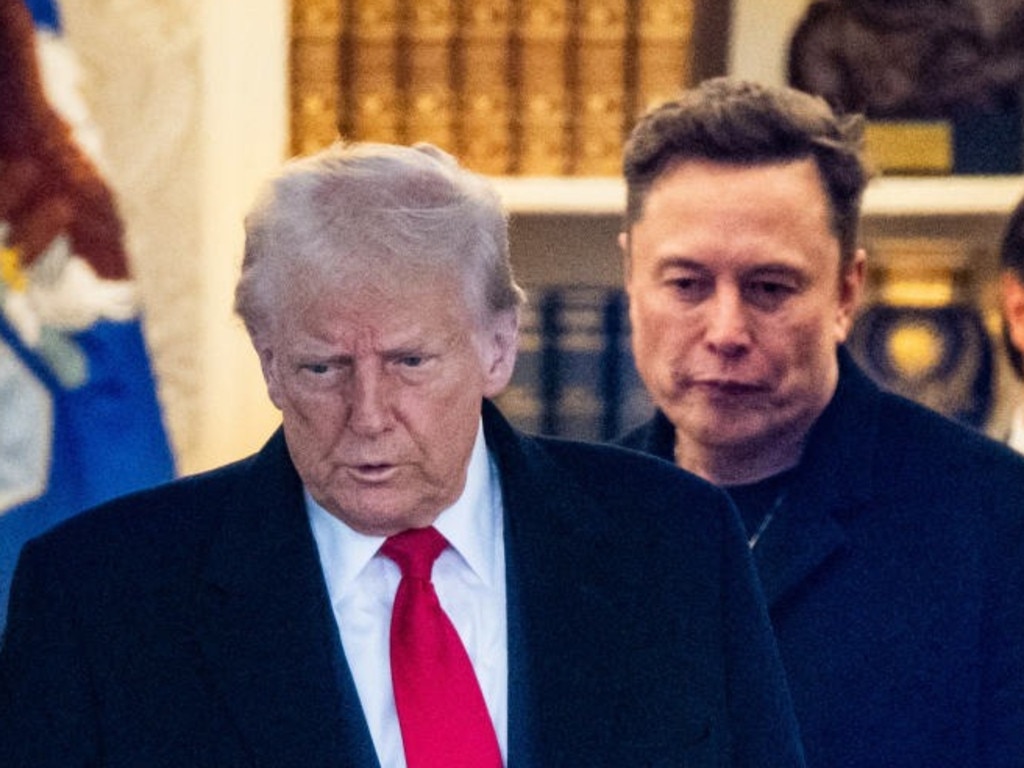
The alliance between Donald Trump and Elon Musk was always likely to be about as durable as the Molotov-Ribbentrop Pact, the 1939 deal Nazi Germany struck with the Soviet Union days before invading Poland.
I won’t extend the analogy too far for obvious reasons of taste, except to say that deals rarely last when they are made for short-term advantage between two parties with outsize ambitions but divergent characters.
The more important question is: Does this split signal something fundamentally awry in the MAGA coalition? What does the quick disillusionment of the Republican Party’s most prominent convert mean for the President and the party’s wider fortunes?
On the face of it, not much. For one thing, the rupture seems mainly personal.
In some respects the MAGA movement is a personality cult. Musk wasn’t that personality. The Tesla and SpaceX boss is a brilliant but mercurial man whose pathologies can lead him to dark places, as we have learned more since the break-up. Even in this White House, it seems, some decorums can’t be breached.

But Musk’s rising animus seems also to have been based on a belated realisation that the returns from his alliance were heavily asymmetric.
As an example of Trump’s facility for one-sided deal-making, it can hardly be bettered. What Musk gave – in campaign money, in good publicity for the Department of Government Efficiency’s assault on wasteful spending, in lost value for Tesla and in his own diminished personal wealth and reputation – wasn’t close to matched by whatever he was supposed to be getting in return.
At least the Soviets got a chunk of Poland and the Baltic states before Operation Barbarossa ended the relationship.
But there’s more to the break than the inevitable parting of two powerful and incompatible egos.
For all his idiosyncrasies, Musk represented a certain class of business leaders that, to varying levels of enthusiasm, embraced Trump and his unorthodox style.
They had grown alarmed by the left’s suffocating control of the nation’s institutions and were eager for the more economically orthodox parts of the Trump agenda.
Many surprised themselves with how enthusiastically they voted last year, believing he would deliver mainly more of the good stuff from the first term. They hoped he would foster growth and economic opportunity, reverse the Biden administration’s regulatory fetishism and end woke extremism.
They are only half happy with the outcome. On deregulation, tax-cutting and the cultural counter-revolution, Trump hasn’t disappointed. But growing numbers of business leaders I speak with (quietly) express dismay about the misbegotten tariff and trade policies, the lack of interest in fiscal prudence, and the wilful alienation of allies and partners around the world (the last a problem to which Musk contributed).
The Musk divorce is symbolic of the tension at the heart of the new Republican coalition. Trump’s working and middle-class multiethnic alliance is driving the highly successful cultural counter-revolution on the border, race, sex and national security.
But those same voters are none too keen on Musk’s free-market approach to trade, migration, taxes and spending.
This tension isn’t new. It has been a core feature of Republican politics for decades. It probably will remain mostly suppressed as long as Trump is boss, because of the sheer force of his personality and the willingness of his less enthusiastic supporters to submit.
But we can expect these fractures to widen in the coming years as the battle for the future of the party begins in earnest.

The other significance of the Musk break is that it represents a slight loosening of the climate of coercive authoritarianism Trump has fostered. As business leaders have watched his treatment of law firms and media companies and others he deems hostile, most have been reluctant to walk into that propeller with public criticism. They will be watching carefully to see whether Musk faces retribution. But the spectacle of America’s richest man and most creative entrepreneur brazenly denouncing the President can’t help but change the climate.
There have been signs in recent weeks that other parts of civil society are rising to challenge the Trump supremacy: senators criticising his fiscal approach and pressing to support Ukraine; the administration’s bowing to court rulings on deportation.
When he acquired and transformed Twitter, Musk described himself as a “free speech absolutist”. He hasn’t always behaved like one in the past year. But his dramatic break with the White House is a useful reminder that for all the concerns Trump understandably arouses about the health of our democracy, a pluralistic, diverse republic doesn’t disappear that easily.
The Wall Street Journal






